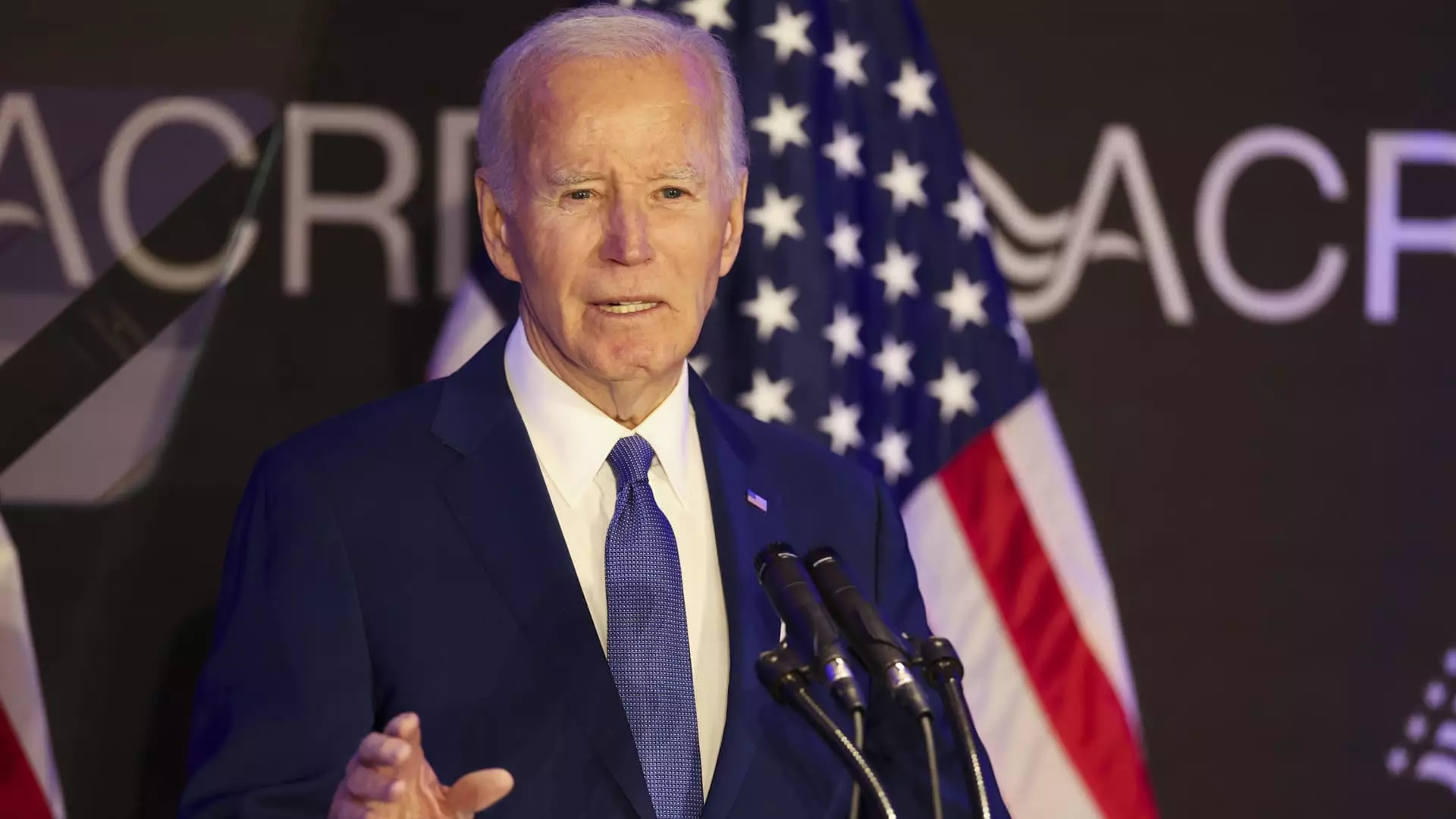The recent news of former President Joe Biden’s prostate cancer diagnosis has sent shockwaves through the nation. At 82, Biden’s health has frequently been a focal point of public scrutiny, but the revelation that he has aggressive cancer with metastasis to his bones is particularly alarming. The gravity of this diagnosis does not merely reflect on his personal health; it raises concerns about stability in leadership and the ongoing debate around age and capability in political office. A Gleason score of 9, the highest range indicating a particularly aggressive strain, signals that this battle will be daunting. It is indeed a challenging time, not just for Biden and his family, but for the morale of a nation that has watched him navigate numerous crises.
As we reflect on the implications of this news, it becomes evident that Biden’s ongoing fight is not just against cancer; it also embodies the struggle against ageism inherent in political discourse today. Biden himself has consistently rejected questions about his age, demonstrating a sense of resilience that some might admire while others may view as a stubborn denial of reality. How can we reconcile the leadership we need in tumultuous times with the vulnerabilities of an aging president?
Political Ramifications and Public Sentiment
The political landscape is fraught with tension concerning Biden’s health. While many leaders have generously extended their well-wishes, including political opponents like Donald Trump, the underlying concern persists: how will Biden’s health impact the Democratic Party’s standing? The fierce competition within the party, especially after Biden’s stalled re-election campaign efforts, raises valid questions about his viability as a candidate. His decline in vigor is more than just personal; it hints at potential vulnerabilities within the political framework that could allow adversaries to gain traction.
Moreover, the public’s worries about Biden’s health touch on deeper issues regarding leadership standards and capabilities at older ages. The unspoken fear is that these health challenges might translate into a lack in effectiveness on pressing issues, from domestic policy to international relations. While the cancer may be hormone-sensitive and potentially manageable, the mere existence of such a diagnosis inevitably colors perceptions of his capability to lead.
The Irony of a “Cancer Moonshot”
Biden’s administration had previously championed the “Cancer Moonshot,” an ambitious initiative aimed at radically reducing cancer mortality rates over the next quarter-century—a poignant reminder of his personal struggles and the legacy of his son, Beau. The irony is striking: the head of a national cancer campaign is now himself in a fight against a daunting diagnosis. This might evoke sympathy and solidarity; however, it also raises concerns about the administration’s ability to remain focused on its key health initiatives when personal crises abound. The stakes have never been higher for Biden; the symbolic weight of his cancer fight melds with the very policies he’s advocating, creating a convoluted narrative of personal and political survival.
Additionally, how will this diagnosis influence the administration’s priorities? Will the focus shift in response to Biden’s health, potentially diverting attention from the goals of the Cancer Moonshot itself? This conundrum reveals the complexity of governance: it is not just about policy-making but about how health issues can recalibrate the very foundations upon which those policies stand.
Empathy and the Fight for Progress
In times of adversity, perhaps the most potent weapon is empathy, and despite the political arena’s harshness, the shared struggle against health issues transcends party lines. Biden has positioned himself as a resilient warrior, gaining support not just for his political stature but as a human being grappling with life’s cruelties. The call for unity in the face of illness highlights a crucial aspect of leadership: the ability to connect on an emotional level.
As Biden faces this latest challenge, one can only hope that he leverages this personal fight to champion broader conversations about healthcare, aging, and support for those battling cancer. His condition may present a difficult road ahead, but there is potential for profound advocacy and progress that comes from personal experience. In a landscape marred by division, perhaps Biden’s public journey through this struggle can serve as a unifying narrative that reminds us of our fundamental shared humanity.

Leave a Reply